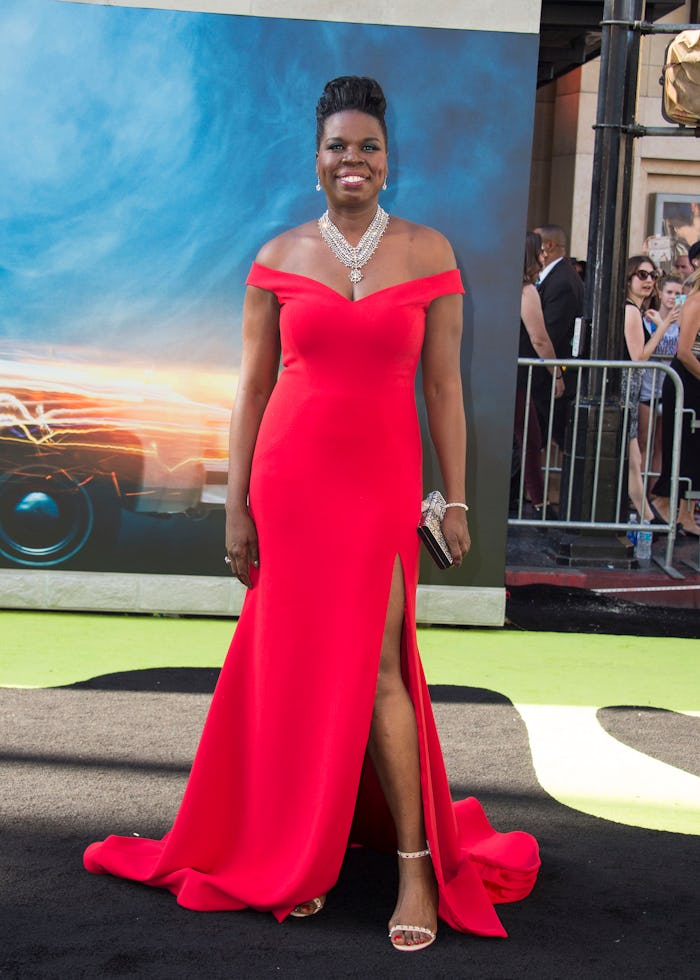Entertainment

Leslie Jones’ Continued Harassment Is Emblematic Of Both Racism & Violence Against Women
The intersection of racism and misogyny is a powerful thing. From systemic levels, overt actions, to everyday microaggressions, women of color, and particularly black women, know all too well what it's like having every aspect of their identity marginalized. Not to mention, women of color in the LGBTQ community face unique marginalization as well. And celebrities are certainly not exempt from such discrimination — in fact, their bodies are often subjected to widespread scrutiny, regardless of their mainstream success. That's why Leslie Jones's continued harassment is emblematic of both racism and violence against women.
Last month, Jones endured a slew of overtly racist and sexist remarks on Twitter, by trolls determined to exercise whatever privilege they have to attack the actress relentlessly. Jones was called a number of racial epithets containing a deep-rooted and hurtful history.
The attacks prompted Jones to take a break from Twitter. In a sit-down interview with Seth Meyers of Late Night, Jones explained why she needed the break.
What’s scary about the whole thing is the insults didn’t hurt me. Unfortunately, I’m used to insults, but what scared me was the injustice of a gang of people jumping against you for such a sick cause… It’s so gross and mean and unnecessary.
The harassment on Twitter sparked the social networking platform's CEO Jack Dorsey to ban Milo Yiannopoulos, a columnist for conservative site Breitbart.com.
But no ban on Twitter can truly eliminate the deep-rooted marginalization of the intersectionality of racism and misogyny for black women and all women of color. Black women still battle the unique marginalizations of having their bodies subject to extreme misogyny, pay gaps in the workplace, and being victims to disproportionate police violence, to name a few.
And on Wednesday, Jones experienced more attacks — this time by hackers who got into the actress' website, and posted naked photos of Jones, along with pictures of her driver's license, and passport, New York Times reported. The hackers, obviously racially-fueled, also reportedly uploaded a photo of Harambe the gorilla. Her website has since been taken down.
The racist and sexist website hack now adds to the instances of public abuse Jones has encountered. And it needs to stop.
Here's the thing: all actors and public figures are expected to have their work and actions evaluated by the public. In March shortly after the Ghostbusters reboot trailer was released, many took issue with Jones' character, in which she played a New York City transit worker, alongside Kristen Wiig, Melissa McCarthy and Kate McKinnon, who all played scientists. People criticized Jones for seemingly playing a stereotypical role — a perceived token, loud, comic-relief, and side-kick-type character.
But this kind of critique is to be expected — especially coming from other black people who feared Jones's roles may have added to the lingering stereotypes connected to black representation in TV and movies.
The unapologetic wrath of racist and sexist attacks on Jones is beyond unacceptable. It's disgusting. And unfortunately, it's another reminder that black women continue to have unique, and violent, injustices to overcome. Stay strong, queen.